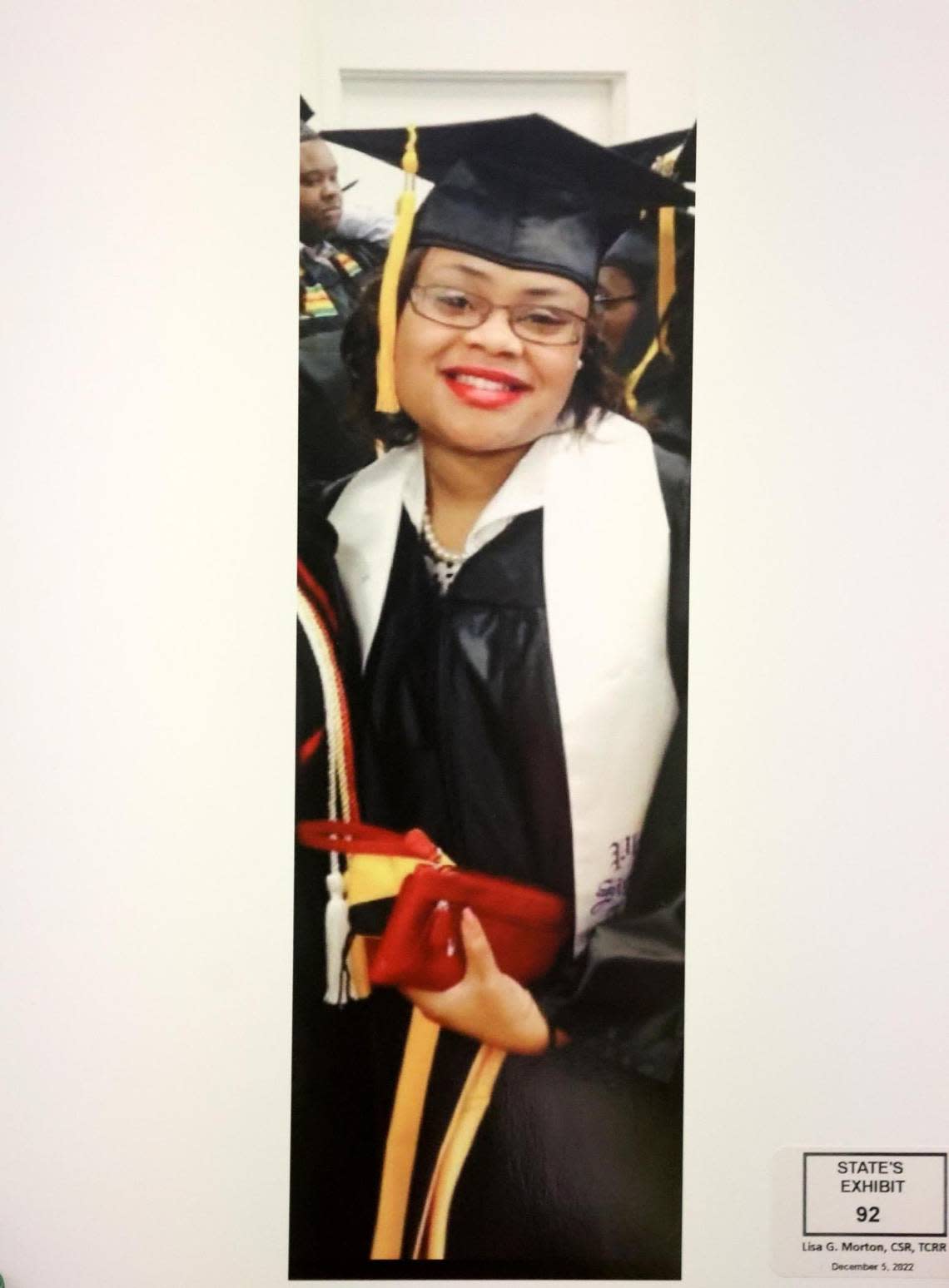Atatiana Jefferson died for protecting herself. Is manslaughter verdict justice? | Opinion
Any one of us could have been Atatiana Jefferson: Hunkered down at home, armed with a handgun for protection, willing and ready to use it if necessary.
This is why the verdict Thursday in the trial over her death — a jury found former Fort Worth police officer Aaron Dean guilty of manslaughter — seems like a compromise and insufficient. Yet, a charge of murder, requiring malicious intent, doesn’t seem to fit, either, for a cop who went on a welfare call, not a rampage, in the middle of the night. Especially if we want to keep robust law enforcement in Tarrant County.
One thing is clear: No one wins here. Not Jefferson’s family. Not Dean. Not the reputation of Fort Worth police. Not residents — Black or white — who rely on law enforcement yet deserve peace in their neighborhoods. Not men and women who keep firearms in their homes as a means of protection.

“Law is but the means, justice is the end,” the motto of Georgetown University Law School, should define any heavy legal endeavor, including a murder trial. In this trial, though, both fell short. The law did not protect Jefferson in life; did it give her justice in death?
What we all learned via Dean’s body camera is that you may have as little as 77 seconds from the time a police officer enters your yard until you are fatally shot, and a jury will not be able to call it murder because Texas’ self-defense law is sufficiently broad. This seems wrong. As a woman, a mother of four, and a firearm owner, I find it terrifying. Dean’s right to defend himself is not greater than mine. It should not have been greater than Jefferson’s. But it was, because of his badge.
The facts are heart-wrenching, stacked brick by brick against the law-abiding, gun-owning Jefferson. A neighbor called police asking for a welfare check as Jefferson’s front door was open, though the storm door remained latched. This small detail, along with a cluttered home — the byproduct of a busy life, perhaps? — sent alarm bells into the brain of perhaps the worst kind of person to become a law enforcement officer: a power-driven one.
It’s clear from his testimony that Dean was too inexperienced to know presumption does not substitute for detective work and too afraid to be confident that a wise but competent police officer could distinguish between a silhouette in a window and an immediate threat. Dean was woefully unready for the responsibility of enforcing laws.
Before Dean asked a question or announced himself — another fatal fact stacked against Jefferson — the young, eager, self-aggrandizing officer saw her raise a gun, he testified. Dean said he believed his life was thus threatened, yelled that she needed to put her hands up, and fatally shot her. 77 seconds. Dean never even attempted CPR.
The right to bear arms and the right to self-defense are linked. In Texas, there is a proud tradition of both. This case has centered around Dean’s self-defense claim but let’s be very clear: Jefferson had every right to pull out her firearm as she sensed a stranger lurking near her window. So do you. So do I. Without a sound or greeting, she believed herself to be in imminent danger. That is clear. What of her safety? What of ours?
A manslaughter verdict sends a signal to the law enforcement community, but somehow, it still feels less like justice and more like a compromise that leaves men and women who are committed to protecting themselves in danger.
